
Nancy: The Jewel of Art Nouveau and Elegant Squares
Nestled in the region of Lorraine, Nancy is a city where art, history, and culture blend seamlessly. Known for its rich architectural heritage, Nancy is the birthplace of the Art Nouveau movement. Walking through its streets, you'll be captivated by the intricate designs of its buildings, showcasing splendid ironwork, stained glass, and flowing lines that capture the essence of this artistic period. At the heart of Nancy lies the stunning Place Stanislas, a UNESCO World Heritage site. It is often hailed as one of the most beautiful squares in the world. Surrounded by opulent 18th-century buildings, the square is a perfect spot for leisurely strolls and soaking in the grandeur of French elegance. Nearby, the Place de la Carrière and Place d'Alliance continue this architectural journey, each offering unique vistas and historical significance. Nancy is also a city of green spaces and gardens. The Parc de la Pépinière, a vast and serene park, offers a lush escape from urban life, complete with a mini-zoo and beautiful flower beds. The city's botanical garden, Jardin Botanique du Montet, boasts an impressive collection of flora from around the world, making it a haven for nature lovers. Cultural enthusiasts will find much to delight in Nancy's museums and galleries. The Musée des Beaux-Arts houses a remarkable collection of European paintings, while the Musée de l'École de Nancy celebrates the city's Art Nouveau legacy. For those interested in history, the Lorraine Museum offers a deep dive into the region's past. Nancy's culinary scene is equally enticing, with local specialties such as quiche Lorraine, bergamotes de Nancy (a type of candy), and an array of fine cheeses and wines that reflect the region's gastronomic heritage. The vibrant markets and numerous cafes provide ample opportunities to savor these delights in a charming setting.
Local tips in Nancy
- Visit Place Stanislas at night when the buildings are beautifully illuminated.
- Enjoy a picnic in Parc de la Pépinière, especially during the spring and summer months.
- Take a guided tour to fully appreciate the details of the Art Nouveau architecture.
- Try local specialties at the Marché Couvert, a bustling market with fresh produce and regional delicacies.
- Plan your visit around the annual Nancy Jazz Pulsations festival for a lively cultural experience.
Neighbourhoods in Nancy
Nancy: The Jewel of Art Nouveau and Elegant Squares
Nestled in the region of Lorraine, Nancy is a city where art, history, and culture blend seamlessly. Known for its rich architectural heritage, Nancy is the birthplace of the Art Nouveau movement. Walking through its streets, you'll be captivated by the intricate designs of its buildings, showcasing splendid ironwork, stained glass, and flowing lines that capture the essence of this artistic period. At the heart of Nancy lies the stunning Place Stanislas, a UNESCO World Heritage site. It is often hailed as one of the most beautiful squares in the world. Surrounded by opulent 18th-century buildings, the square is a perfect spot for leisurely strolls and soaking in the grandeur of French elegance. Nearby, the Place de la Carrière and Place d'Alliance continue this architectural journey, each offering unique vistas and historical significance. Nancy is also a city of green spaces and gardens. The Parc de la Pépinière, a vast and serene park, offers a lush escape from urban life, complete with a mini-zoo and beautiful flower beds. The city's botanical garden, Jardin Botanique du Montet, boasts an impressive collection of flora from around the world, making it a haven for nature lovers. Cultural enthusiasts will find much to delight in Nancy's museums and galleries. The Musée des Beaux-Arts houses a remarkable collection of European paintings, while the Musée de l'École de Nancy celebrates the city's Art Nouveau legacy. For those interested in history, the Lorraine Museum offers a deep dive into the region's past. Nancy's culinary scene is equally enticing, with local specialties such as quiche Lorraine, bergamotes de Nancy (a type of candy), and an array of fine cheeses and wines that reflect the region's gastronomic heritage. The vibrant markets and numerous cafes provide ample opportunities to savor these delights in a charming setting.
When is the best time to go to Nancy?
Iconic landmarks you can’t miss
Place Stanislas
Explore the stunning Place Stanislas in Nancy, a UNESCO World Heritage site, where 18th-century architecture meets vibrant cultural life.

Parc de la Pépinière
Experience the beauty and tranquility of Parc de la Pépinière, a captivating city park in Nancy, France, perfect for relaxation and exploration.
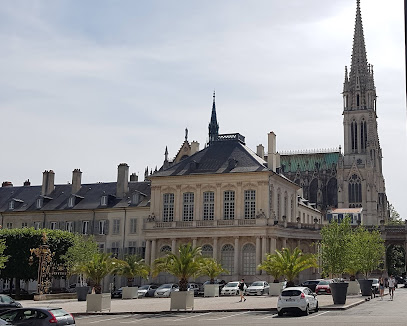
Saint Mary Park of Nancy
Discover the tranquility of Saint Mary Park in Nancy, a lush urban oasis filled with beautiful gardens, sculptures, and vibrant local culture.
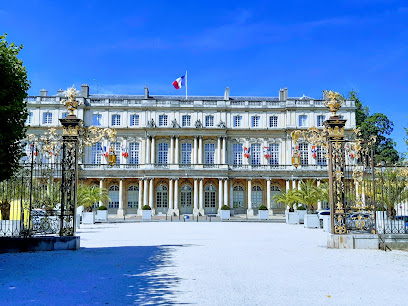
Nancy Museum-Aquarium
Explore the fascinating world of nature and marine life at the Nancy Museum-Aquarium, a top tourist attraction in Nancy, France.
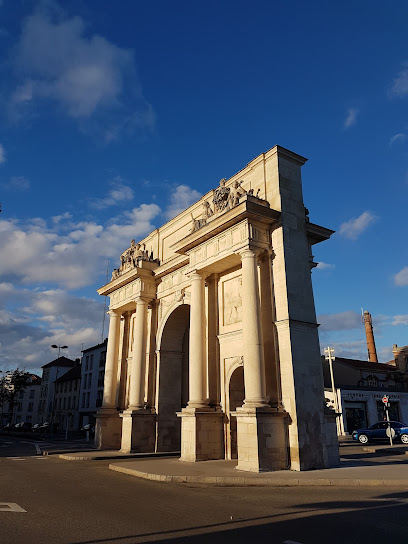
Musée de l'École de Nancy
Explore the exquisite Art Nouveau collection at Musée de l'École de Nancy, a must-visit art museum celebrating the beauty and craftsmanship of this iconic movement.
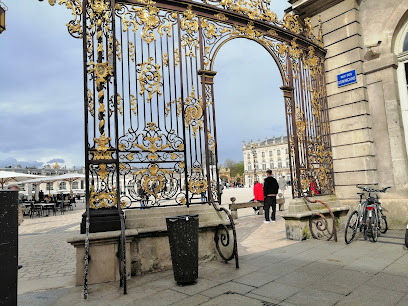
Museum of Fine Arts in Nancy
Discover a rich collection of art from the Renaissance to contemporary works at the Museum of Fine Arts in Nancy, France's cultural gem.
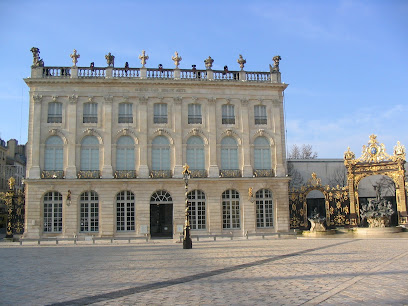
Villa Majorelle
Explore Villa Majorelle in Nancy, a stunning Art Nouveau masterpiece showcasing exquisite architecture and rich artistic heritage in France.
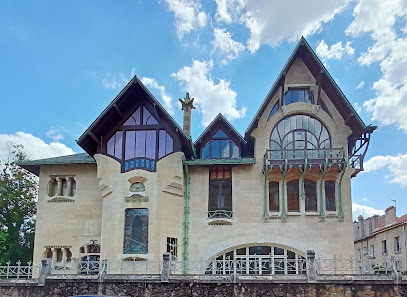
Place de la Carrière
Explore the architectural beauty and cultural richness of Place de la Carrière, a must-visit landmark in Nancy, France.
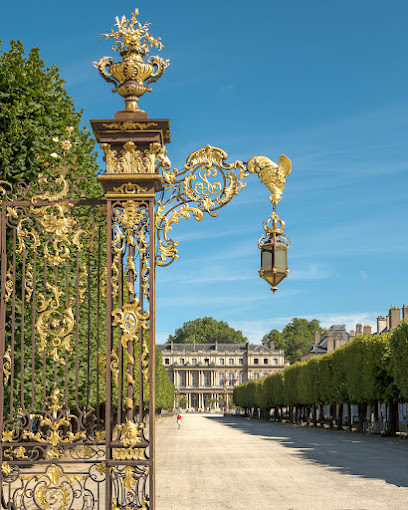
La _ Maison dans le Parc
Experience the elegance of French cuisine at La Maison dans le Parc, a culinary gem in Nancy, perfect for food lovers and tourists alike.
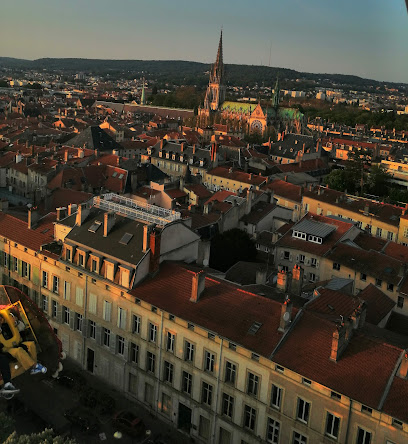
Poirel Room, Nancy
Discover the heartbeat of Nancy at the Poirel Room, where live music and vibrant performances create unforgettable memories.
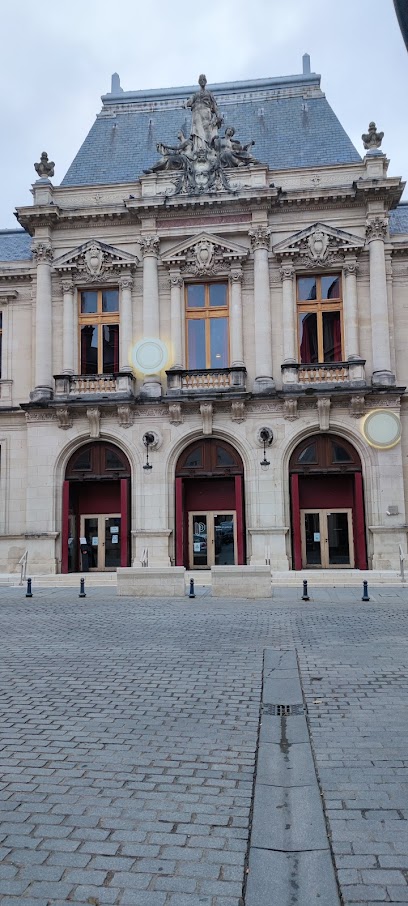
Nancy Congress Center - Centre Prouvé
Discover the Nancy Congress Center - Centre Prouvé, a premier event venue blending modern architecture with the vibrant culture of Nancy, France.
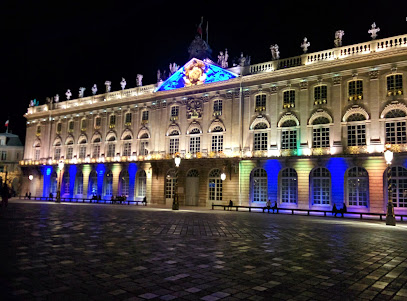
Porte Désilles
Discover the historical significance and architectural beauty of Porte Désilles, a must-visit memorial in the heart of Nancy, France.
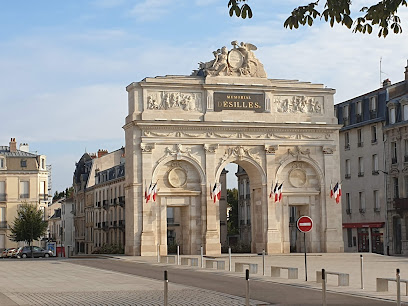
Basilica of Saint Epvre of Nancy
Discover the breathtaking Basilica of Saint Epvre in Nancy, a stunning Gothic masterpiece rich in history and architectural splendor.
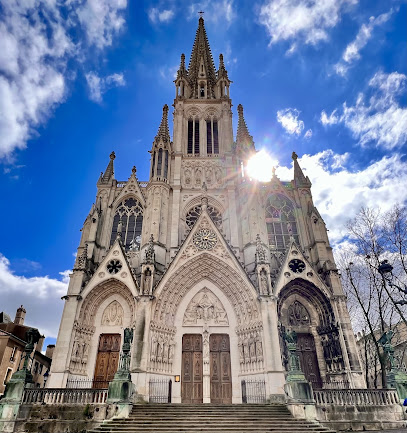
Opéra national de Lorraine
Explore the Opéra National de Lorraine, Nancy's premier opera house, where captivating performances and stunning architecture await every visitor.
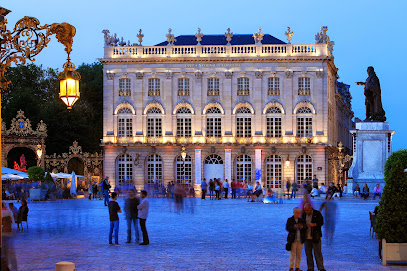
Place Charles III
Experience the heart of Nancy at Place Charles III, a vibrant market square filled with local culture, delicious cuisine, and stunning architecture.
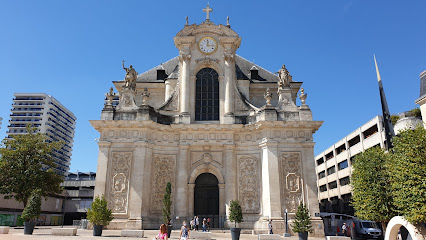
Unmissable attractions to see
Place Stanislas
Experience the architectural splendor and vibrant culture of Place Stanislas, a UNESCO World Heritage site in Nancy, France.
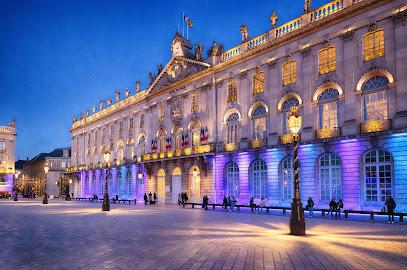
Metz Cathedral
Discover the stunning Metz Cathedral, a masterpiece of Gothic architecture with breathtaking stained glass and rich history.
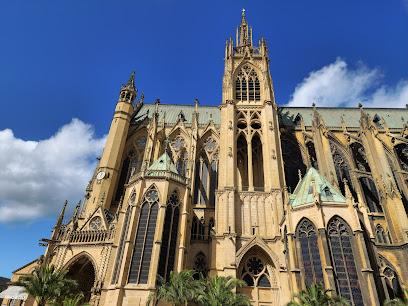
Parc de la Pépinière
Explore the lush landscapes and serene ambiance of Parc de la Pépinière, a must-visit urban park in Nancy, France, perfect for relaxation and recreation.
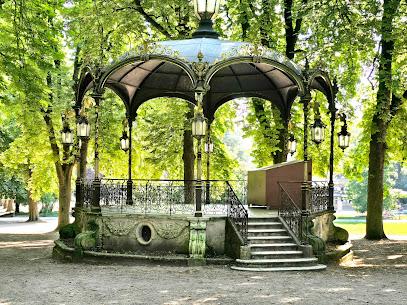
Centre Pompidou-Metz
Discover contemporary art at the Centre Pompidou-Metz, a stunning architectural gem and cultural center in Metz, France.
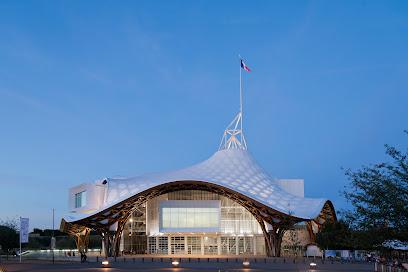
Jean-Marie Pelt Botanical Garden
Explore the enchanting Jean-Marie Pelt Botanical Garden in Villers-lès-Nancy, a serene oasis showcasing diverse plant species and beautiful landscapes.
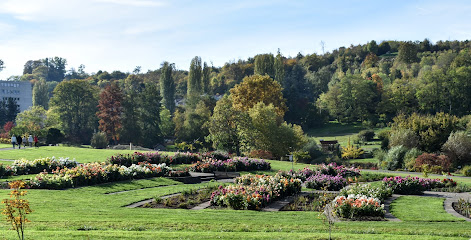
Saint Mary Park of Nancy
Discover the lush beauty of Saint Mary Park in Nancy, a serene urban escape filled with stunning gardens, cultural events, and relaxing pathways.
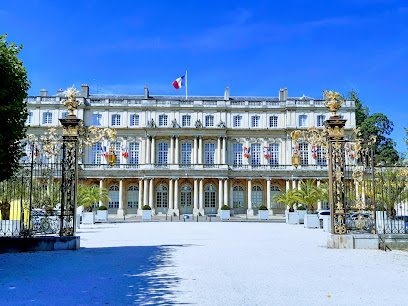
Nancy Museum-Aquarium
Discover the captivating blend of aquatic wonders and natural history at Nancy Museum-Aquarium, a must-visit for tourists in Nancy, France.
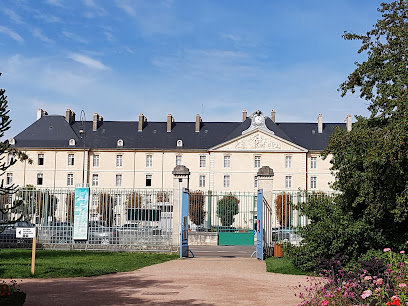
German Gate
Explore the German Gate in Metz, a historic landmark that beautifully showcases the city’s architectural heritage and offers a glimpse into its rich past.
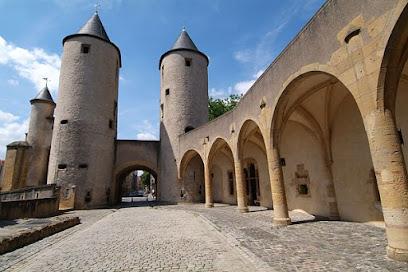
Museum of La Cour d'Or
Explore the Museum of La Cour d'Or in Metz: A treasure trove of history, art, and culture waiting to be uncovered.
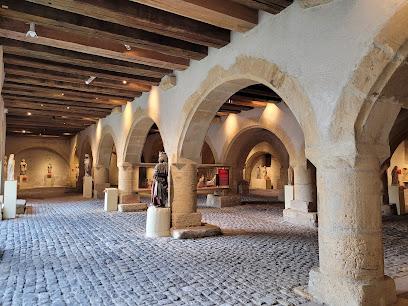
Museum of Fine Arts in Nancy
Explore the Museum of Fine Arts in Nancy, where art comes alive in a stunning architectural setting, featuring masterpieces from renowned artists across the ages.
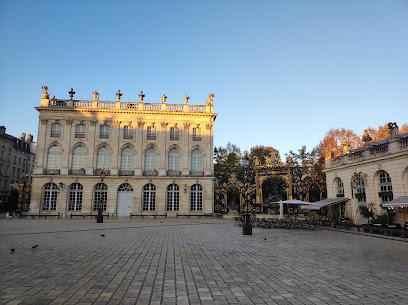
Musée de l'École de Nancy
Explore the captivating Art Nouveau treasures at Musée de l'École de Nancy, a must-visit cultural attraction in the heart of Nancy.
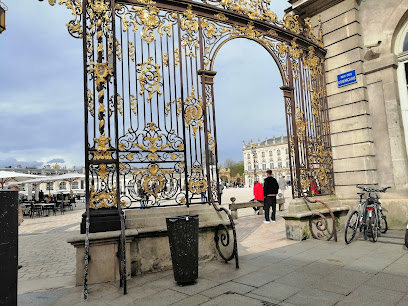
Place de la Carrière
Discover the architectural marvels of Place de la Carrière, a historical gem in Nancy, France, featuring exquisite 18th-century buildings and vibrant cultural events.
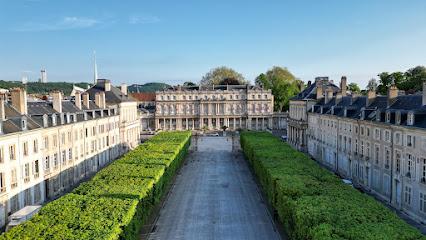
New Temple
Discover the New Temple in Metz, a stunning Protestant church showcasing neo-Gothic architecture and rich local heritage in a serene atmosphere.
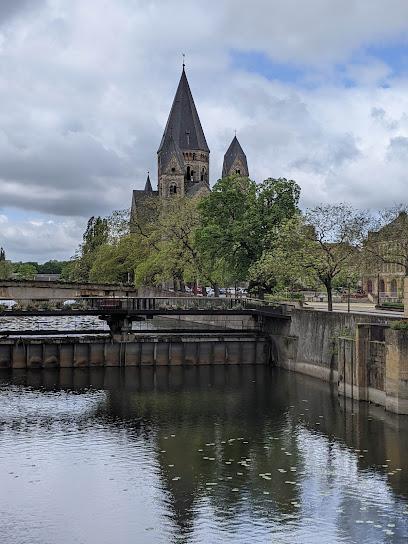
Opéra-Théâtre de Metz
Discover the opulent Opéra-Théâtre de Metz Métropole, a cultural landmark offering unforgettable performances in the heart of Metz.
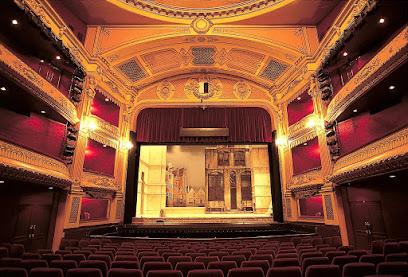
Porte Désilles
Discover the historical significance of Porte Désilles, a stunning memorial in Nancy, France, blending rich history with vibrant city life.
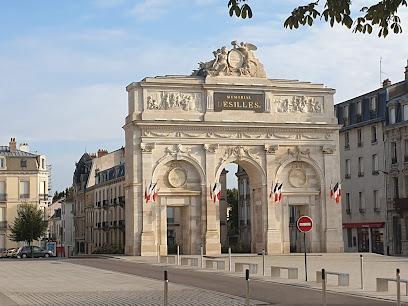
Essential places to dine
Brasserie L'Excelsior
Experience the elegance of French dining at Brasserie L'Excelsior in Nancy - where tradition meets exquisite cuisine.
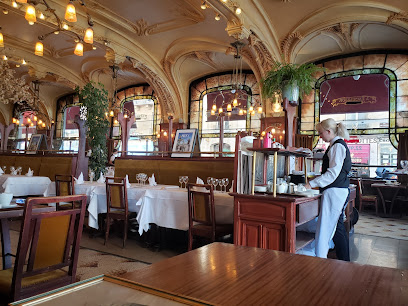
Les Fils à Maman Nancy
Experience the vibrant flavors of France at Les Fils à Maman Nancy - where comfort food meets eclectic dining in an inviting atmosphere.
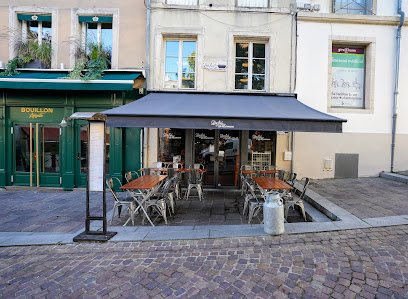
IL RISTORANTE, le restaurant Italien de Nancy
Experience authentic Italian flavors at IL RISTORANTE in Nancy - a delightful culinary journey awaits!
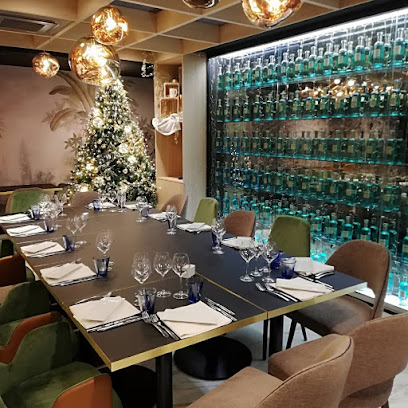
Le bouche à oreille
Experience exquisite French cuisine with a special focus on artisanal cheeses at Le bouche à oreille in Nancy.
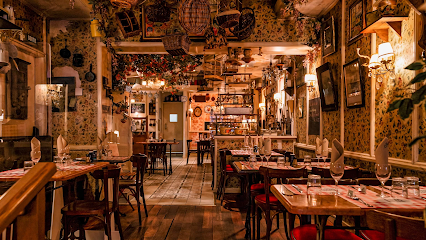
Restaurant des Frères Marchand
Experience authentic French cuisine at Restaurant des Frères Marchand in Nancy - where culinary tradition meets modern elegance.
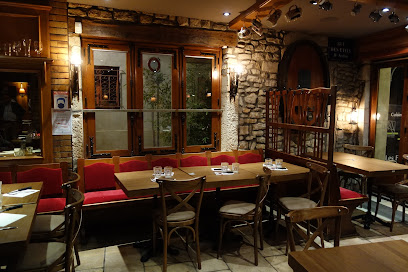
La _ Maison dans le Parc
Experience the elegance of French cuisine at La Maison dans le Parc, Nancy's premier dining destination known for its exquisite flavors and sophisticated ambiance.
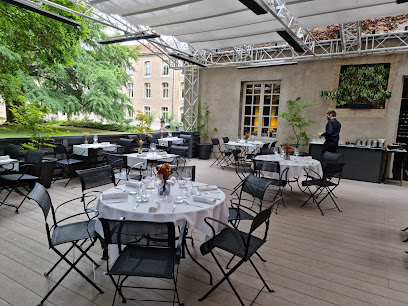
La Gentilhommière
Experience the elegance of French cuisine at La Gentilhommière in Nancy, where fine dining meets local tradition.
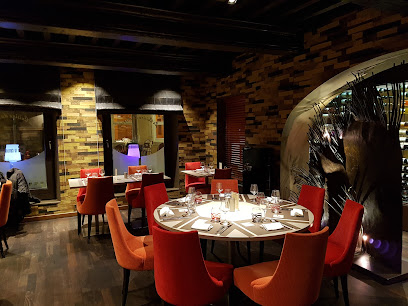
La Table de Bacchus
Experience exquisite French and Mediterranean cuisine at La Table de Bacchus in Nancy—a true culinary gem.
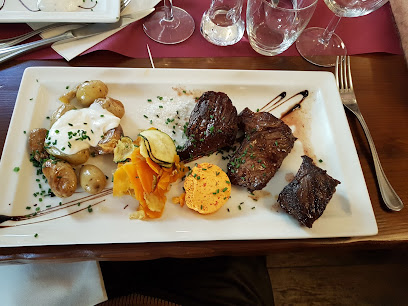
La Petite Cuillere
Discover authentic French country cuisine at La Petite Cuillere in Nancy - where every dish tells a story.
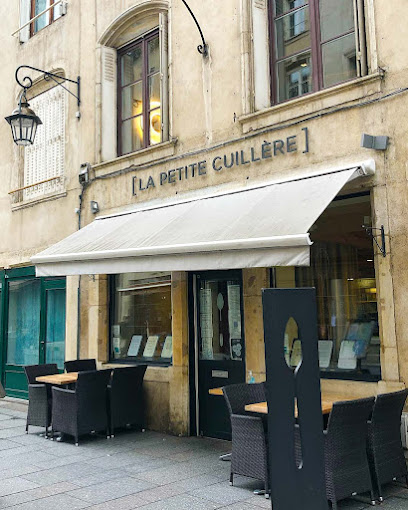
Restaurant Pidélice
Experience authentic Turkish flavors at Restaurant Pidélice in Nancy – where Mediterranean meets fast food in an inviting atmosphere.
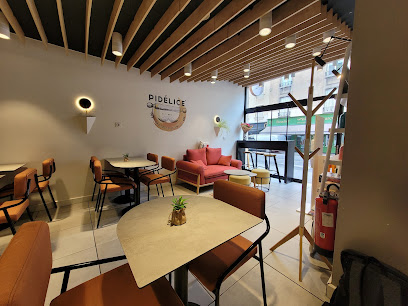
L'Escale
Discover the authentic flavors of French cuisine at L'Escale in Nancy - where every meal is a celebration of local ingredients.
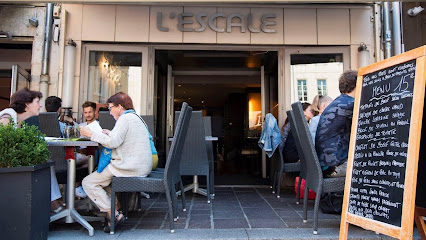
La Puce à l'Oreille
Discover authentic French cuisine at La Puce à l'Oreille in Nancy – where every dish tells a story of local flavors and culinary passion.
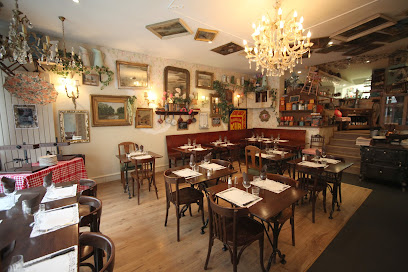
Groseille
Discover Groseille: An exquisite fine dining experience offering authentic French cuisine in the heart of Nancy.
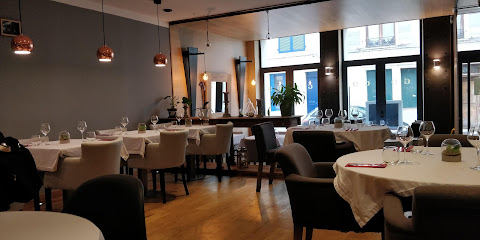
Restaurant la Primatiale
Experience modern French cuisine at Restaurant la Primatiale in Nancy, where culinary artistry meets local flavors in an elegant setting.

Suzette&Gino
Experience the exquisite blend of French and Italian flavors at Suzette&Gino in Nancy – where every meal is a delightful celebration.
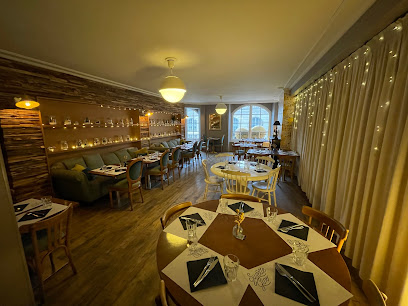
Markets, malls and hidden boutiques
Centre Commercial Saint Sébastien
Explore the bustling Centre Commercial Saint Sébastien in Nancy, a shopping haven featuring diverse boutiques, dining options, and entertainment for all ages.
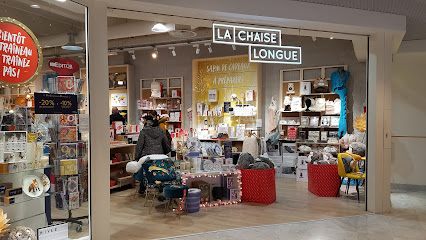
Printemps Nancy
Explore Printemps Nancy: A Luxurious Shopping Destination with Designer Boutiques and Exquisite Fashion Finds in the Heart of Nancy.
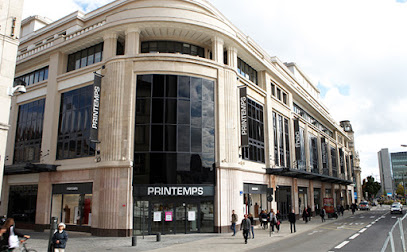
Nature & Découvertes Nancy
Explore Nature & Découvertes Nancy for unique gifts and eco-friendly treasures in a charming shopping atmosphere.
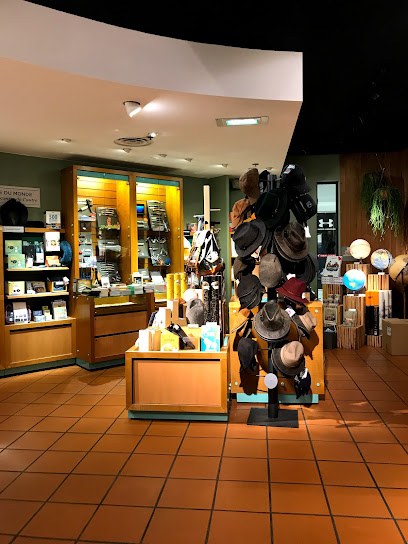
Sorbet Citron
Explore Sorbet Citron in Nancy, where artisanal sweets meet unique gifts, creating a delightful shopping experience for every visitor.
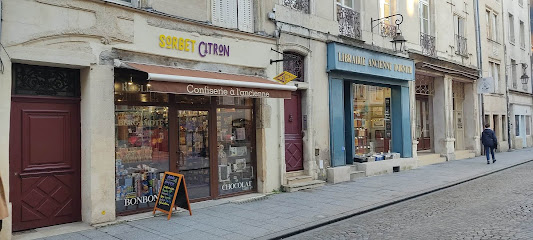
Flying Tiger Copenhagen Nancy
Explore an eclectic mix of toys, home goods, and unique gifts at Flying Tiger Copenhagen in Nancy, a must-visit for all travelers.
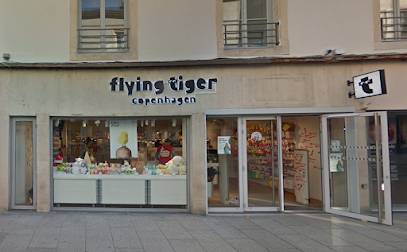
La Galerie sur son 31
Explore a unique blend of antiques, art, and culture at La Galerie sur son 31, a must-visit destination in Nancy, France.
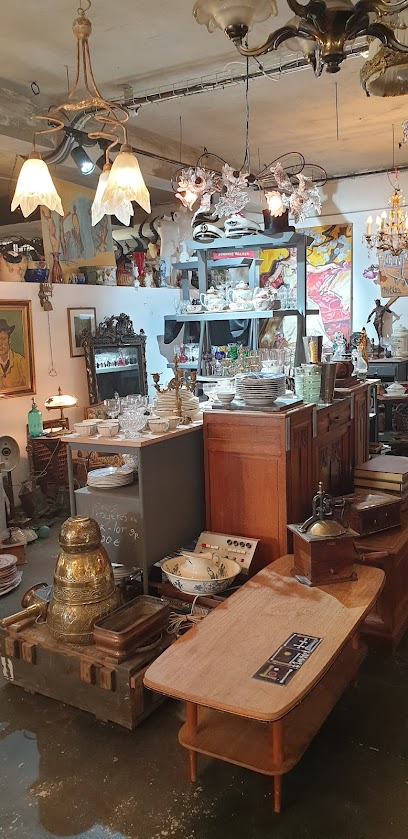
CASA Nancy
Explore CASA Nancy for unique gifts, home decor, and delightful kitchen supplies in the heart of Nancy, France.
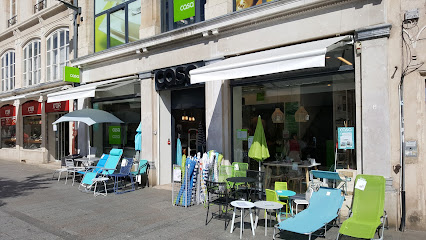
Le Comptoir Irlandais Nancy
Explore an authentic Irish gift shop in Nancy, offering clothing, gourmet delicacies, and unique souvenirs that capture the spirit of Ireland.
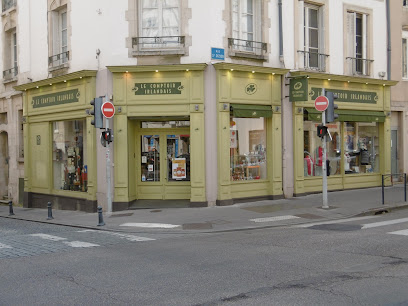
Akiba Station
Explore the enchanting world of toys at Akiba Station in Nancy, where imagination comes to life and nostalgia reigns supreme.
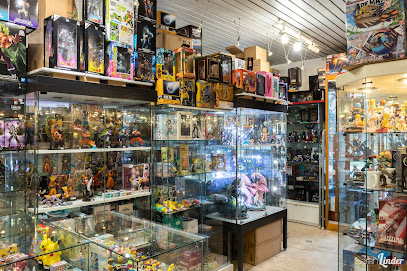
Les Nabis
Explore Les Nabis in Nancy for a unique shopping experience filled with local artistry, perfect gifts, and unforgettable souvenirs.
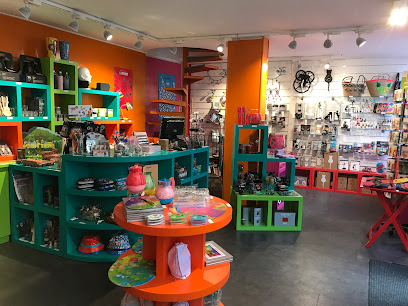
A Taaable
Explore A Taaable, Nancy's charming home goods store, offering unique decor and essentials that capture the essence of French craftsmanship.
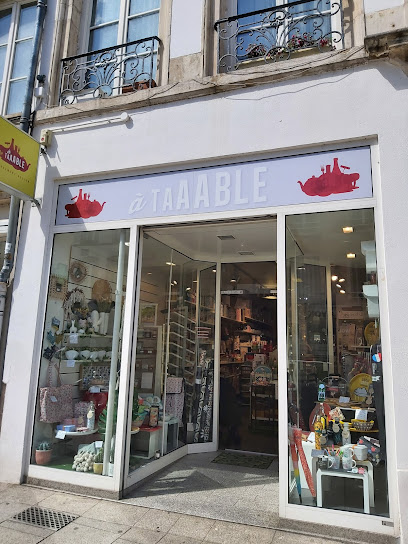
Repère
Explore Repère in Nancy for a distinctive selection of men's and women's clothing and unique gifts that embody the spirit of the city.
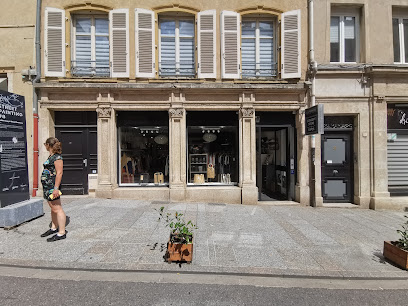
Le petit Souk Nancy
Explore the enchanting Le Petit Souk Nancy, a charming gift shop offering unique toys, home goods, and delightful treasures in the heart of Nancy, France.
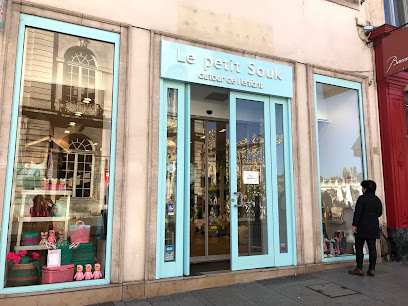
La Cité Magique Nancy
Explore La Cité Magique in Nancy: A Magical Gift Shop for Unique Souvenirs and Local Artisan Crafts.
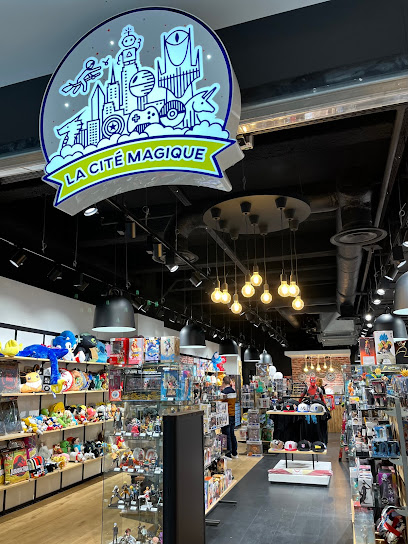
Espace Week-End
Discover Espace Week-End in Nancy, your go-to spot for stylish men's and children's clothing that combines quality with contemporary design.
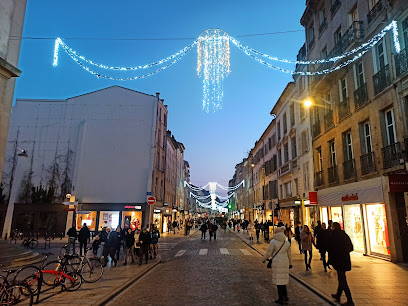
Essential bars & hidden hideouts
Les Artistes Café
Experience the vibrant ambiance and artistic charm of Les Artistes Café in the heart of Nancy, where every visit offers a taste of local culture.
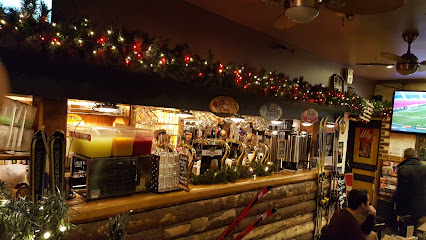
Pub Mac Carthy
Discover the charm of Ireland in the heart of Nancy at Pub Mac Carthy, where great food, drinks, and entertainment come together.
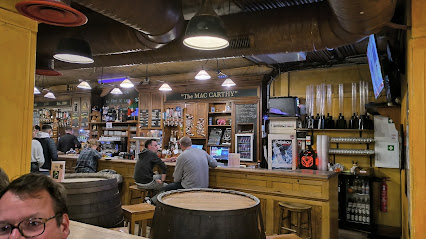
Les Berthom
Discover the vibrant bar scene at Les Berthom in Nancy, where craft beers, ciders, and delicious tapas await every visitor.
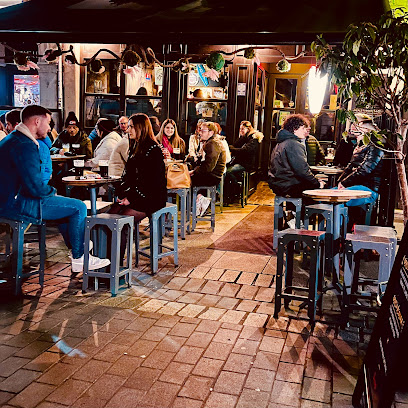
Le Ch'timi
Discover the best of local brews and vibrant atmosphere at Le Ch'timi, a must-visit beer hall and café in Nancy, France.
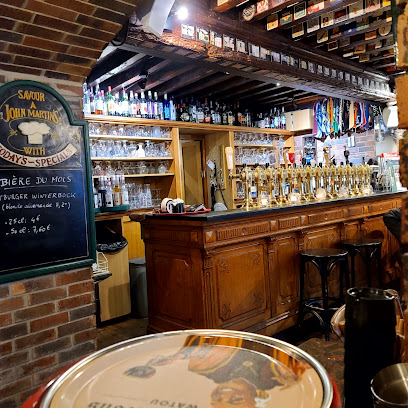
Pub Le Phenix
Discover the vibrant ambiance and delightful drinks at Pub Le Phenix, a must-visit pub in the heart of Nancy, France.
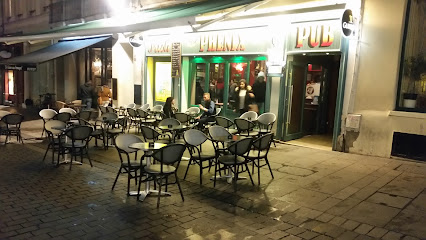
La Faille
Experience the vibrant nightlife of Nancy at La Faille, where craft beers and cocktails meet exceptional ambiance and live entertainment.
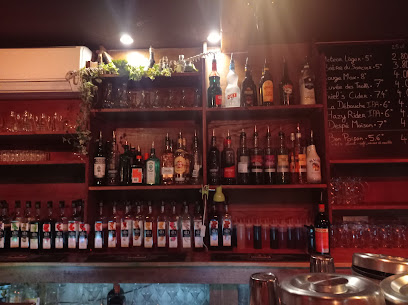
L'Ambassy
Discover L'Ambassy in Nancy, a chic bar and café offering delightful cocktails and a vibrant atmosphere to enhance your travel experience.
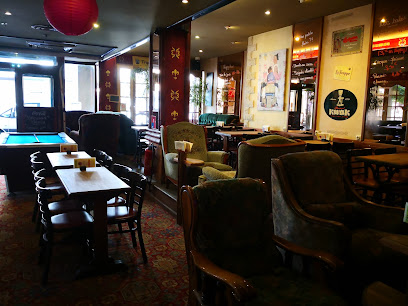
La Quinc'
Experience the cozy ambiance and delicious offerings at La Quinc', Nancy's charming bar and café perfect for relaxation and socializing.
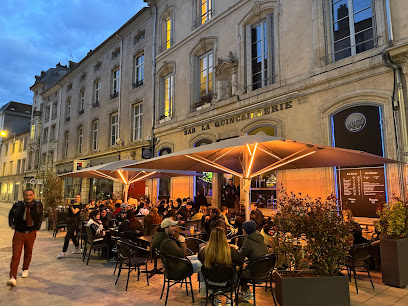
Rhumerie La Plantation
Experience the vibrant fusion of Caribbean cocktails and artistic ambiance at Rhumerie La Plantation in Nancy.
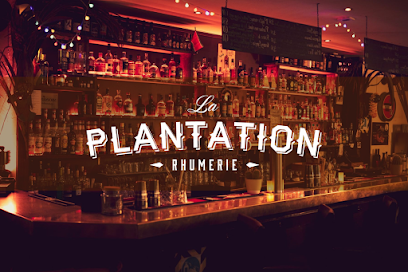
Le Brexit
Discover the vibrant atmosphere of Le Brexit, Nancy's favorite bar, offering a delightful selection of drinks and a lively social experience.
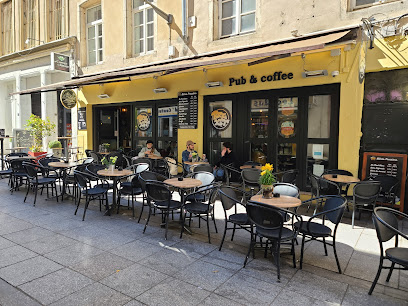
Le Médiéval
Discover Le Médiéval, a lively bar in Nancy offering a medieval charm and a vibrant atmosphere for unforgettable nights out.
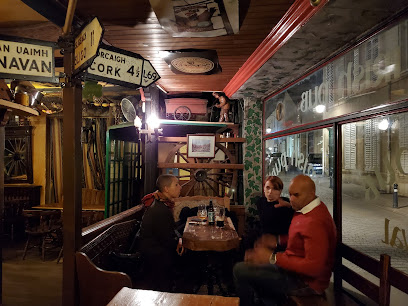
Les Arrangés du bocal
Explore the vibrant cocktail culture at Les Arrangés du Bocal, Nancy's premier destination for artisanal drinks and a cozy atmosphere.
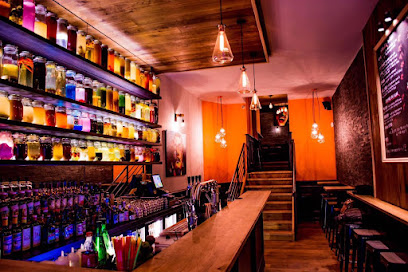
Bagatelle
Discover Bagatelle, a cozy bar in Nancy, where delightful drinks and a warm atmosphere await you for a memorable night out.
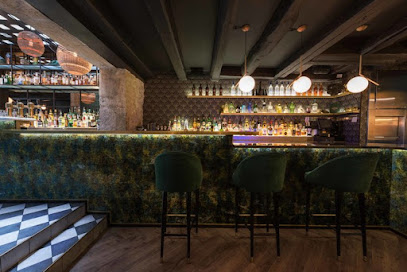
Ruin Bär
Experience the vibrant nightlife of Nancy at Ruin Bär, a bar known for its eclectic atmosphere and extensive drink menu.
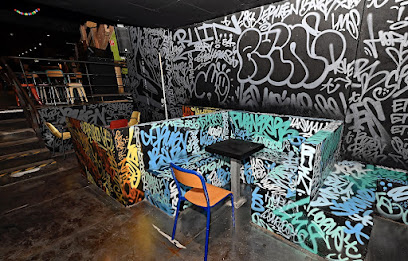
Local Phrases
-
- HelloBonjour
[bon-zhoor] - GoodbyeAu revoir
[oh ruh-vwahr] - YesOui
[wee] - NoNon
[noh] - Please/You're welcomeS'il vous plaît
[see voo pleh] - Thank youMerci
[mehr-see] - Excuse me/SorryExcusez-moi
[ex-kew-zay mwah] - How are you?Comment ça va?
[koh-mohn sah vah] - Fine. And you?Bien. Et vous?
[byen. ay voo] - Do you speak English?Parlez-vous anglais?
[par-lay voo ahn-glay] - I don't understandJe ne comprends pas
[zhuh nuh kohm-prahnd pah]
- HelloBonjour
-
- I'd like to see the menu, pleaseJe voudrais voir la carte, s'il vous plaît
[zhuh voo-dray vwahr lah kart, see voo pleh] - I don't eat meatJe ne mange pas de viande
[zhuh nuh mahnj pah duh vee-and] - Cheers!Santé!
[san-tay] - I would like to pay, pleaseJe voudrais payer, s'il vous plaît
[zhuh voo-dray pay-yay, see voo pleh]
- I'd like to see the menu, pleaseJe voudrais voir la carte, s'il vous plaît
-
- Help!Au secours!
[oh se-coor] - Go away!Allez-vous en!
[ah-lay voo zan] - Call the Police!Appelez la police!
[ah-peh-lay lah po-lees] - Call a doctor!Appelez un médecin!
[ah-peh-lay uh may-deh-sahn] - I'm lostJe suis perdu(e)
[zhuh swee pair-doo] - I'm illJe suis malade
[zhuh swee mah-lahd]
- Help!Au secours!
-
- I'd like to buy...Je voudrais acheter...
[zhuh voo-dray ah-shet-ay] - I'm just lookingJe regarde juste
[zhuh ruh-gard zhoost] - How much is it?Combien ça coûte?
[kohm-byen sah koot] - That's too expensiveC'est trop cher
[say troh shair] - Can you lower the price?Pouvez-vous baisser le prix?
[poo-veh voo bay-say luh pree]
- I'd like to buy...Je voudrais acheter...
-
- What time is it?Quelle heure est-il?
[kel ur ay-teel] - It's one o'clockIl est une heure
[eel ay tew-nur] - Half past (10)Dix heures et demie
[dees ur ay duh-mee] - MorningMatin
[mah-tan] - AfternoonAprès-midi
[ah-pray mee-dee] - EveningSoir
[swahr] - YesterdayHier
[ee-air] - TodayAujourd'hui
[oh-zhoor-dwee] - TomorrowDemain
[duh-man] - 1Un
[uh] - 2Deux
[duh] - 3Trois
[twah] - 4Quatre
[kah-truh] - 5Cinq
[sank] - 6Six
[sees] - 7Sept
[set] - 8Huit
[wheat] - 9Neuf
[nurf] - 10Dix
[dees]
- What time is it?Quelle heure est-il?
-
- Where's a/the...?Où est...?
[oo ay] - What's the address?Quelle est l'adresse?
[kel ay lah-dres] - Can you show me (on the map)?Pouvez-vous me montrer (sur la carte)?
[poo-veh voo muh mohn-tray (soor lah kart)] - When's the next (bus)?Quand est le prochain (bus)?
[kahn ay luh pro-shahn (boos)] - A ticket (to ....)Un billet (pour ....)
[uhn bee-yay (poor)]
- Where's a/the...?Où est...?
History of Nancy
-
Nancy was founded in the 11th century as a small fortified town by Gérard d'Alsace, Duke of Lorraine. The strategic location of the city helped it to develop quickly as a significant military and political center in the region.
-
The Battle of Nancy, fought on January 5, 1477, was a pivotal moment in the history of the city. Charles the Bold, Duke of Burgundy, was killed in this battle, ending his ambitions to create a powerful state between France and the Holy Roman Empire. This event significantly influenced the balance of power in the region.
-
Under the rule of Duke Charles III in the 16th century, Nancy underwent significant urban and cultural transformation. The city saw the construction of the Ville-Neuve (New Town) and many Renaissance-style buildings, which contributed to its architectural heritage.
-
Stanislas Leszczyński, the former King of Poland, became Duke of Lorraine in the 18th century. His reign marked a golden era for Nancy, with the creation of the iconic Place Stanislas, Place de la Carrière, and Place d'Alliance. These squares, which are now UNESCO World Heritage Sites, are prime examples of Enlightenment urban planning and architecture.
-
Following the death of Stanislas Leszczyński in 1766, the Duchy of Lorraine was annexed to France. This event marked the integration of Nancy into the French kingdom, leading to significant administrative and cultural changes in the city.
-
In the late 19th and early 20th centuries, Nancy became a hub for the Art Nouveau movement, spearheaded by the École de Nancy. Artists and architects like Émile Gallé, Louis Majorelle, and Victor Prouvé contributed to the city's unique aesthetic with their innovative designs in glasswork, furniture, and architecture.
-
Nancy was occupied by German forces during World War II from 1940 until its liberation by the U.S. Third Army in September 1944. The city suffered significant damage during the war, but it was subsequently rebuilt and restored in the post-war period.
-
Today, Nancy is a vibrant city that balances its rich historical heritage with modernity. It is known for its prestigious universities, cultural institutions, and ongoing contributions to the arts and sciences. The city's historic sites continue to attract visitors from around the world.
Nancy Essentials
-
Nancy is located in the northeastern part of France. The nearest international airport is Metz-Nancy-Lorraine Airport, approximately 45 kilometers away. From the airport, you can take a shuttle bus or taxi to Nancy. Alternatively, you can fly into Luxembourg or Paris and take a high-speed train (TGV) to Nancy. The journey from Paris to Nancy by train takes about 1.5 hours. Nancy is also well-connected by train to other major cities in France and neighboring countries.
-
Nancy has a well-developed public transportation system, including buses and trams operated by the STAN network. Tickets can be purchased at kiosks or directly from the driver. Biking is also a popular way to get around, with several bike rental stations available throughout the city. Taxis and ride-sharing services are readily available as well. For those who prefer driving, car rentals are available, but be aware that parking in the city center can be challenging.
-
The official currency in France is the Euro (EUR). Credit and debit cards are widely accepted in most hotels, restaurants, and shops. However, it is advisable to carry some cash for smaller establishments and markets. ATMs are plentiful and can be found throughout the city. Make sure to inform your bank of your travel plans to avoid any issues with card transactions.
-
Nancy is generally a safe city for tourists. However, it is always wise to take standard precautions. Avoid walking alone late at night in unfamiliar areas and keep your belongings secure in crowded places. Be cautious in the neighborhoods around the train station and Place Stanislas, as petty theft and pickpocketing can occur. Always be aware of your surroundings and keep an eye on your personal items.
-
In case of emergency, dial 112 for immediate assistance. This number connects you to emergency services, including police, fire brigade, and medical services. The main hospital in Nancy is the Centre Hospitalier Régional Universitaire (CHRU) de Nancy, which provides comprehensive medical care. Pharmacies are available throughout the city for minor health issues and over-the-counter medications. It is recommended to have travel insurance that covers medical emergencies.
-
Fashion: Do dress stylishly but comfortably. Avoid overly casual clothing like flip-flops or shorts when dining out or visiting cultural sites. Religion: Do respect local customs and traditions, especially in religious sites. Dress modestly and remain quiet. Public Transport: Do validate your ticket before boarding a tram or bus. Don't eat or drink on public transport. Greetings: Do greet people with a polite 'Bonjour' (Good day) and a smile. A handshake is common when meeting someone for the first time. Eating & Drinking: Do try local delicacies and wines. Don't rush through your meal; dining is a leisurely activity in France.
-
To experience Nancy like a local, take a leisurely stroll through Parc de la Pépinière, a beautiful park where locals gather for picnics and relaxation. Visit the local markets, such as the Marché Central, to buy fresh produce and regional specialties. Engage in conversation with locals who are often friendly and willing to share recommendations. Don't miss the Art Nouveau architecture, particularly the Villa Majorelle and Musée de l'École de Nancy. For a unique experience, attend a performance at the Opéra National de Lorraine.
Trending Landmark in Nancy
-
Place Stanislas
-
Parc de la Pépinière
-
Saint Mary Park of Nancy
-
Nancy Museum-Aquarium
-
Musée de l'École de Nancy
-
Museum of Fine Arts in Nancy
-
Villa Majorelle
-
Place de la Carrière
-
La _ Maison dans le Parc
-
Poirel Room, Nancy
-
Nancy Congress Center - Centre Prouvé
-
Porte Désilles
-
Basilica of Saint Epvre of Nancy
-
Opéra national de Lorraine
-
Place Charles III
Nearby Cities to Nancy
-
Things To Do in Dudelange
-
Things To Do in Remich
-
Things To Do in Luxembourg City
-
Things To Do in Colmar
-
Things To Do in Grevenmacher
-
Things To Do in Arlon
-
Things To Do in Strasbourg
-
Things To Do in Echternach
-
Things To Do in Diekirch
-
Things To Do in Vianden
-
Things To Do in Wiltz
-
Things To Do in Freiburg
-
Things To Do in Clervaux
-
Things To Do in Basel
-
Things To Do in Reims


















